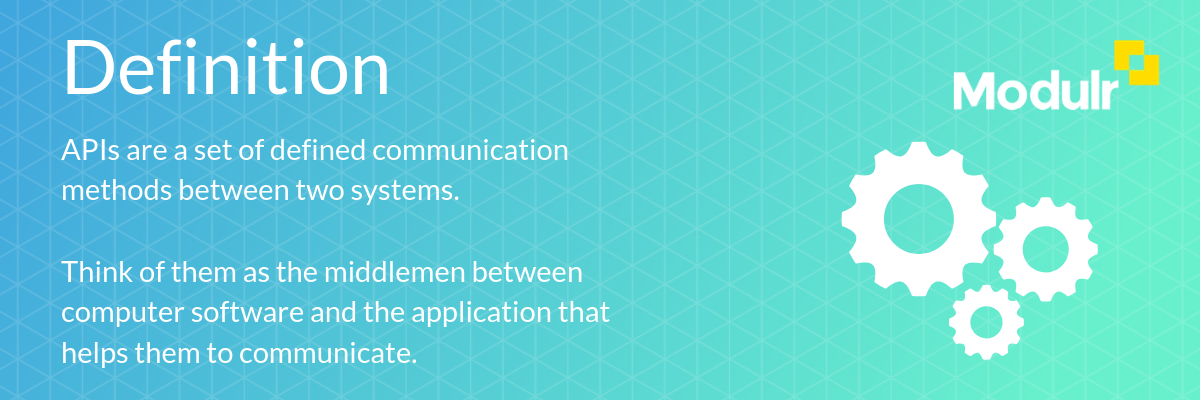In this C-Suite Column, Ritesh Tendulkar, Modulr's chief software architect, explains how APIs are transforming payments as we know it.
I truly believe APIs (or Application Programming Interfaces) have been a revolutionary force in the world of payments.  And yet the concept of APIs is not new - they’ve been around for several years helping some of the biggest tech giants provide customers with enhanced choice and variation, opening commerce up to whole new revenue streams.
And yet the concept of APIs is not new - they’ve been around for several years helping some of the biggest tech giants provide customers with enhanced choice and variation, opening commerce up to whole new revenue streams.
That is also true of payment service providers (PSPs) who have also invested heavily in APIs to support their business functions and expand into new markets.
The same methodology also applies for the fintech and banking sector, where businesses offer third-party access to their APIs to facilitate payments on top of their core banking structures. For example, an API call is used when a challenger banks notifies consumers of instant spending notifications and real time transactions.
You’re only as agile as your API
Tech businesses have to strive to avoid a so called ‘onion architecture’ in their IT systems - this is when new products and services are built on top of existing systems but using newer and, more importantly, different approaches. These newer features perhaps look good on the consumer-facing side of the business, but lack efficiency and, over time, become difficult to extend as more layers of the ‘onion’ are built.
APIs are transforming the payments sector and driving innovation because they provide an effective way to fix this onion problem. APIs allow for the segregation of various parts of IT systems which are built with differing approaches and technologies.
At Modulr, security is at the core of our business and we’re committed to ensuring our systems are as efficient as possible in order to be able to provide our customers with the best payment solution. Embracing the API based architecture lets us embed these security best practices deep within our platform.
Our client facing API is how our clients and partners connect to us providing their customers with fantastic services and features. This is how everything we have built in the platform and continue to enhance is accessed. Keeping our API simple, consistent and up to date is how our clients and partner are able to access these enhancements.
Operating in the payments industry means that we have greater responsibility when it comes to handling and processing payments, but for us this is a way of working and creating value within our business.
The in-house API platform gives us the agility and drive to work with clients on a specific use case and then build a product based around their needs. This not only gives Modulr the competitive edge to create APIs based on functionality but also ensures that clients have exactly what they’re looking for.
How we differentiate with our API platform
There are essentially three differentiators to our systems at Modulr. The first is that we have built our API completely from the ground up, the second is that it is purpose built, specifically for our products. And the third is that it’s built completely in-house.
Building it from ground up: It’s common for businesses to use APIs that have already been built for specific products and then duplicate them to apply to new models or offerings. Building new structural architecture is not easy, hence why businesses may copy the system they have in place which they already trust and know works well and apply it to other use cases. Modulr API is not built as an ‘onion’ layer to a pre-existing system. All features of our platform are built to be accessed by our API making it a first-class seat, so to speak.
The benefits of a purpose-built API: Our API platform has also been built specifically for what we do. We provide customers to connect with our payment functionality to facilitate and automate payments, handle cash flow and streamline incoming payments. The API is consistent across various payment types, currencies and payment methods. This is an important aspect for businesses to consider when choosing a provider as certain APIs may work for one use case but become inefficient with another.
Build it in-house: At Modulr, we build our API platform in-house to maximise productivity and provide our customers with greater security and ease when launching new products. At Modulr, we take security seriously and invest heavily in our products, business and teams. Building in-house and having our own systems ensures that our payment methods are of the highest security standards possible.
We pride ourselves on having complete ownership and protecting the work that we provide to our clients. We are also able to roll out new products and features quickly. This lets us enhance and adapt our API to address a features that may be very important to our customers.
These three aspects all work together to allow us to serve our customers so they can focus on their business cases by simplifying their business payments.
To find out more about how to make payments with Modulr’s API platform watch the demo below.
Alternatively, view our API documentation here.
